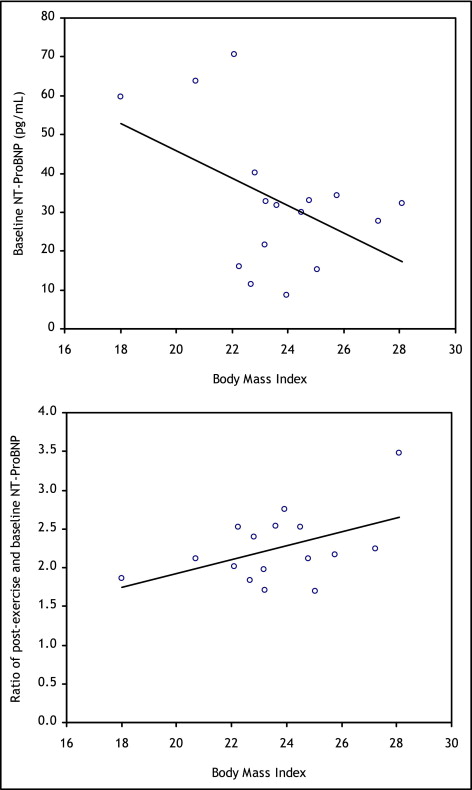We read with interest the recent report by Cheng et al, who observed that the concentration of plasma N-terminal pro–B-type natriuretic peptide (NT-proBNP) was inversely associated with regional adiposity in community-based patients.
The aim of this study was to assess the concentrations of NT-proBNP in 16 healthy trained white men (mean age 46 years, range 37 to 58; mean body mass index [BMI] 23.6 kg/m 2 , range 18.0 to 28.1) who performed a 21-km half marathon under competition conditions (maximal aerobic uptake 85 ± 3%). A baseline blood sample was collected after a fast, after a 24-hour period of rest from the last training session, 30 minutes before the start of the run. An additional sample was collected within 10 minutes from the end of the trial. NT-proBNP was assayed using a sandwich electrochemiluminescence immunoassay using an Elecsys 2010 analyzer (Roche Diagnostics GmbH, Mannheim, Germany), as previously described.
In agreement with the results of Cheng et al, we observed a marginally significant inverse association between NT-proBNP and BMI (r = −0.471, p = 0.048; Figure 1 ) . We observed that the increment of NT-proBNP immediately after exercise, as expressed by the ratio between the postexercise and baseline values, was significantly and positively associated with BMI (r = 0.476, p = 0.044; Figure 1 ).





